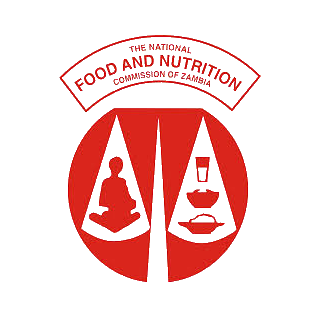Overview
The First 1000 Most Critical Days Programme, a three year programme currently being implemented in Zambia, is one of the most ambitious and well coordinated multi sectoral responses towards reducing malnutrition; stunting in particular, that this country has ever seen. Its primary focus is to reduce the levels of stunting in children below two years of age from 45% to 35% by the year 2016 because the effects of chronic malnutrition are irreversible beyond the first two years of life.
Under nutrition has a huge human and economic cost. Globally, it accounts for about 35% of under five deaths. In Zambia, chronic malnutrition stands at 40%. The causes are many. They include, but are not limited to poverty, urban rural inequality, gender inequalities (where women have little education, information, limited access to health services), poor diet diversity, chronic food insecurity, low quality of foods, and poor hygiene, water and sanitation.
In response to this, Scaling Up Nutrition (SUN), a global movement was formed to help countries fight the scourge and Zambia was among the ‘early risers’ to adopt and implement the programme, focusing on the reduction of stunting.
The First 1000 Most Critical Days Programme draws its human resource and technical expertise from a multi sectoral pool which includes the National Food and Nutrition Commission (Secretariat), the Ministries of Agriculture and Livestock, Community Development Mother and Child Health, Local Government, Health and Education, as well as civil society organizations like CSO-SUN, and international organizations like UNICEF, USAID, DIFD, Irish Aid and World Vision International.
Its pooled funding comes from four different sources, CARE-SUN Fund (managed by CARE International), UN Agencies, USAID and the Government. These directly finance approved multi sectoral provincial and district plans designed to reduce malnutrition at community level.
The Provinces work through committees while the districts work through District Nutrition Coordinating Committees (DNCCS). All members have received formal orientation from the national level on how to run the programme, and various critical aspects including planning, implementation, communication and advocacy, financial management, reporting and monitoring and evaluation.
Overall, the DNCCS carry out the following tasks: review progress against set targets; identify and develop priority actions to include in community multi sectoral annual work plans; implement the community multi sectoral plans; provide technical support and backstopping to community based service delivery channels and review resource requirements for result oriented actions from the community based multi sectoral plans delivery structures.
The First 1000 MCDP has five main strategic areas listed below:
- Policy and Coordination
This Strategic Area is intended to provide guidance on leadership, harmonization and coordination of the First 1000 Most Critical Days Programme across sectors and at all levels. It addresses the institutional, organizational and governance requirements of the NFNC and muilti- sector coordination from national to sub national levels led by the NFNC. - Priority Interventions
This strategic area aims at increasing coverage of nutrition specific and nutrition sensitive interventions. Zambia has adopted 14 nutrition specific and nutrition sensitive interventions targeting pregnant women, lactating mothers, infants and young children under 24months. - Institutional and Capacity Building and Training
This Strategic Area has two objectives. The first one is to build institutional and human capacity for the effective delivery of nutrition services, including the design, development and implementation of relevant nutrition programmes, projects and interventions targeting relevant service delivery systems. The second one is to increase pre-service and in-service training opportunities for food and nutrition services at national, provincial, district and community levels. - Communication and Advocacy
The objective of this Strategic Area is to increase nationwide knowledge, awareness, ownership, participation around the First 1000 Most Critical Days Programme. To this end, the National Food and Nutrition Commission and its partners have produced two guiding documents, the Advocacy Strategy and the 1000 MCDP Communication Strategy, which clearly outline the time-based activities to be undertaken at national, provincial, district and community levels. - Monitoring, Evaluation and Research
This Strategic Area is meant to track progress and generate evidence to guide policy, decision making and programme implementation across the sectors.- In Zambia, there is no comprehensive and coordinated M & E and research system on nutrition to give proper guidance to the policy formulation, decision making and programme implementation. Different sectors have scanty information on nutrition in relation to the programmes they implement.
- Currently, nutrition information is collected through Demographic Health Surveys (DHS) and Living Conditions and Monitoring Surveys (LCMS), nutrition surveys, Health Information Management Systems (HMIS), Education Management Information System (EMIS), Vulnerability Assessments, Crop forecast surveys.
Visit PROJECT WEBSITE



